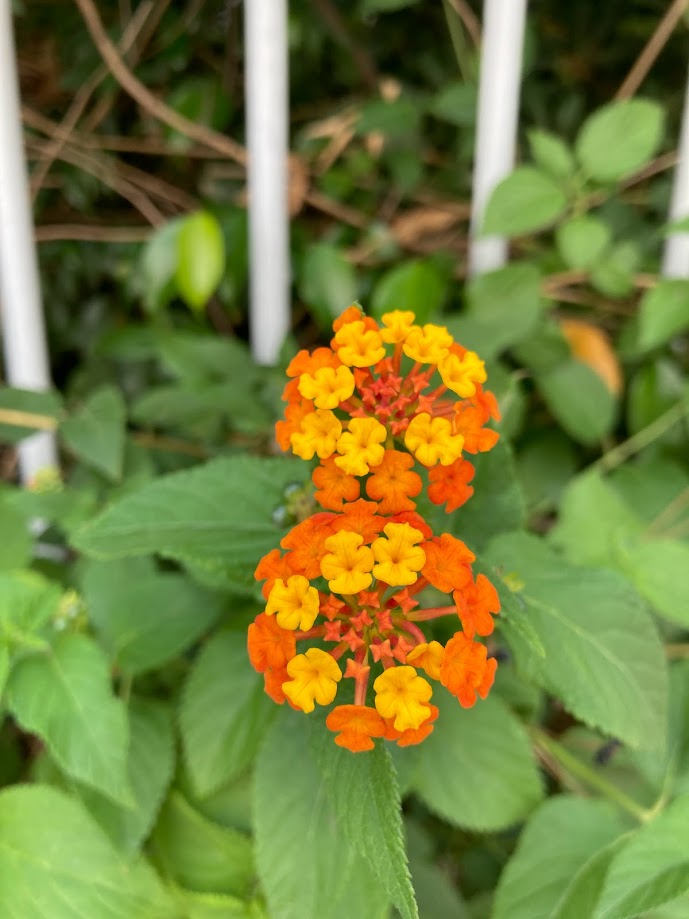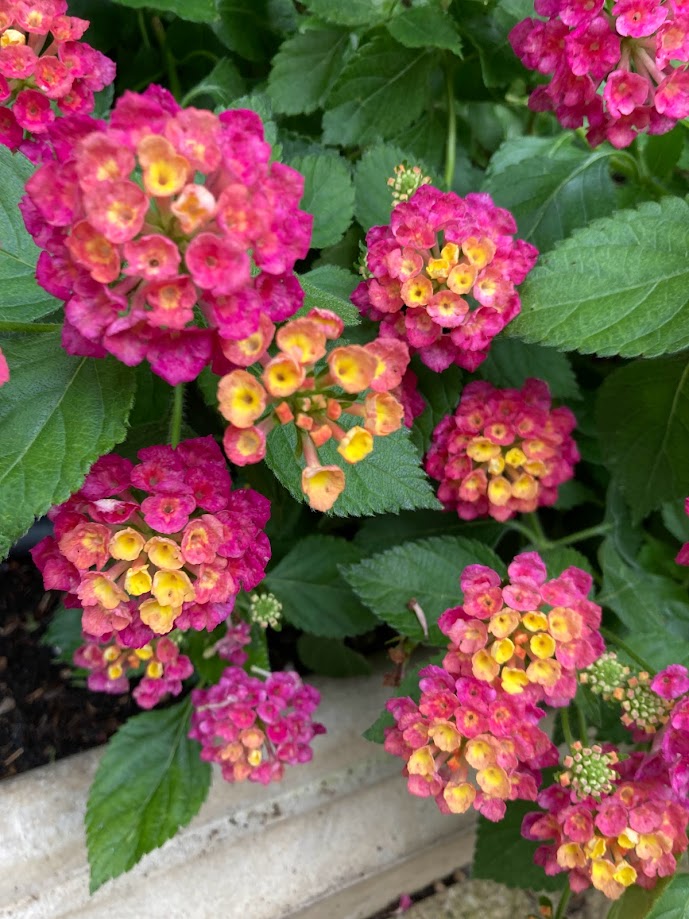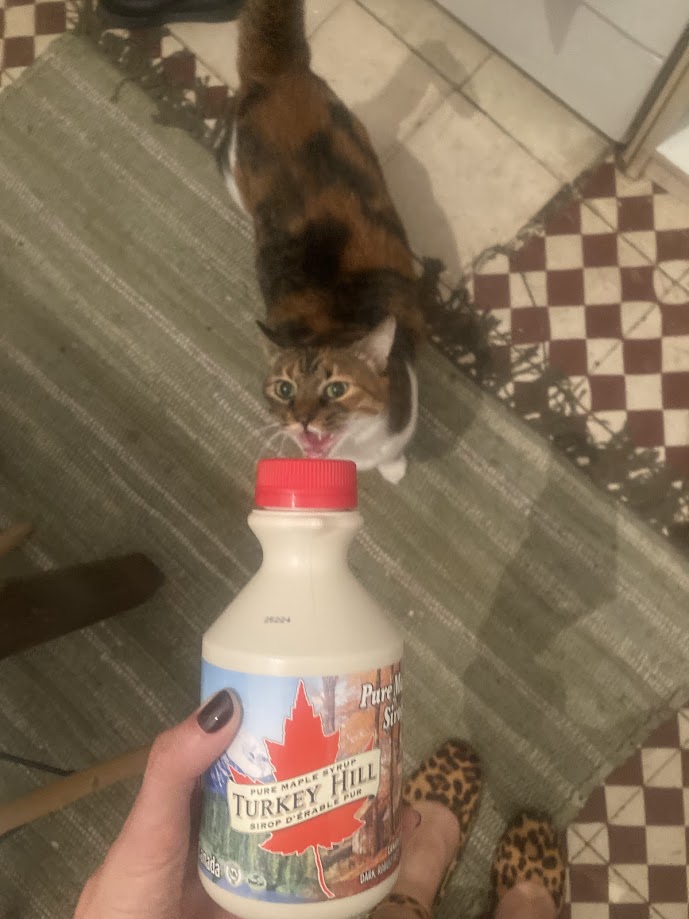Advice from an Invasive Species
Ashley Denny Petch
Look at my favourite plant: the Lantana Camara.




Like me, the Lantana Camara is not native to Greece. Like me, it is tolerant of a wide range of conditions. This is what is required to uproot and invade. I am an opportunistic plant. Once introduced to a new environment, I expand recklessly.
I invade, therefore I belong. I have mastered the art of social-territorial conquest. I’m like Napoleon, only taller and afraid of horses.
So here is my best advice to you, dear reader, who may want to uproot, invade, encroach and impinge.
Step 1: Declare eternal permanence
If I had to guess, I meet roughly five new people a week: friends of friends, baristas, security guards, bartenders, a nun here or there. The small talk turns to how I ended up here, in Athens. No - how I chose to be here. An invasion is always planned, of course.
“Apo ton Kanada. Nai. Alla meno edo”. I always make a point to tell them I intend to stay here permanently. Forever. Panda. I never want to move back to Canada, I announce dramatically. I don’t know if that’s to convince others or myself, but it inevitably pushes the conversation towards a predictable place. I put myself in a position of having to justify my decision. Primarily, to myself. “Einai kallitera edo”.
To be permanently foreign, by choice, is to be constantly aware of your own visibility. To successfully infiltrate a new environment, you must wield that foreignness to make yourself perpetual and interesting.
Step 2: Seek intimacy and security from strangers
There are only imperfect English translations for the Greek word Steki: “Haunt”, “Stamping ground”, “Hangout”.
For my North American brethren, it’s your Cheers. 🎵 Sometimes you wanna go where everybody knows your name 🎵 is a steki. Derived from the word στεκομαι, steki means “to stand, where one stands”. Not necessarily a bar, a steki is any physical space where you can become a regular: a coffee shop, hobby shop, bowling alley, bookshop, etc.
A steki is a place to belong, without being known. It’s an essential element of urban life.
Post-incursion, it’s essential for you to cultivate as many steki as possible, as soon as possible. The reader interested in attempting this type of social invasion would do well to study both my missteps and triumphs:
Ottawa, 2012
I’d like to think I had places where I belonged: Zaphods, Shawarma King, Legend Records, The Rochester on trivia nights. Most importantly, The Ottawa Curling Club. Where I was regularly found. But I was never satisfied with just being there. I needed to force the familiarity. I lingered too long. I told too-personal stories. I made Chad the bartender play the Cheers theme song over the loudspeaker when I walked in; I needed to be the main character. I don’t even curl. It was too much. As the Replacements say, “Am I the only one who feels ashamed?”
London, 2018-2019
Every morning on my way to work at Bentham House, I'd stop at the coffee shop around the corner for a black americano. Every morning, the same barista would greet me as a total stranger. The longer this went on, the more curious I became.I hated that coffee shop, I hated London. Perceive me! I exist! But when I complained to my British coworkers that I wanted him to remember my order and say hi, they all agreed it would be intrusive, creepy even, for a barista to remember a patron. It never once occurred to me that he was forgetting me out of politeness. Turns out that a central London coffee shop isn’t the best clay out of which a steki is formed.
Athens, 2025
I am in recent possession of a shabby, old barstool that I'll never get rid of. It was ceremonially gifted to me by a gruff barman on the night that his kafeneio closed for the last time. I had been a regular for less than a year, tagging along with my boyfriend to watch soccer, but Lazaros had taken a liking to me. The bar was a refuge for a small group of PAOK fans; supporting a Thessaloniki team in the middle of Exarcheia made them exiles in need of a clubhouse. So, disguised as a Macedonian football diehard, I joined their little diaspora and integrated like an expert invasive species, absorbing the psychic weight of Balkan history as I cheered alongside my new friends. The night that Lazaros retired, we wandered off, barstools slung over our shoulders, in search of a new steki. And like an overenthusiastic anthropologist, I successfully inherited their nostalgia without earning it.

Step 3: Mimic Accents, Gestures, Everything
Like most people, I struggle with the tension between wanting to be known and needing anonymity, of wanting to be form and then disappear. A steki is a perfect solution because it provides you with a vanishing sense of belonging. Real belonging is to be known, to be understood. A steki is a shortcut. There is relief in being surrounded by people who recognize your face, without having to share your interiority. It’s convenient to mistake recognition for intimacy. Just ask Norm.
So if having a steki isn’t real belonging, what is? What does it mean to truly belong? What are the forces that form community? Hell if I know - probably better to ask Charles Taylor, Emile Durkheim, or the guy that wrote the Archie Comics.
Perhaps it’s misleading to say that real belonging is to be understood. Is it even possible to be known by others? No, you silly plant. This foolishly presumes that we have a knowable self, and that we’re in control of it. (Read Spinoza to free yourself from yourself)
What do we surrender in order to belong? To belong is to remove the psychic barrier between your sense of autonomy and the rhythm of a group. Belonging is mimicry and repetition: it’s chanting a sports slogan, making the sign of the cross, knowing which fork to eat with. It is precisely words and gestures that bring you into a community - they are the currency of inclusion. You become part of the group once you can act like you’re part of the group.
Communities sustain themselves by what they exclude. In Greece, during the 20th-century heyday of café-stekis, kafeneia sorted themselves by the political loyalties of their patrons, even marking their allegiance with different coloured doors.1 “Othering” the enemy is an excellent unifier. Inclusion works the same way on a smaller scale: a steki is a place of small gestures repeated until they feel real, those who perform become part of the fold, and those who do not are quietly denied the benefits of the tribe.
Step 4: Sacrifice a Goat
A couple weeks ago, sitting at a Saturday afternoon steki of mine, a historian named Michalis recounted this story to me:
Androgeus, the son of Minos of Crete, arrived in Athens and was slain unjustly by its citizens, who envied his beauty and royal lineage. His murder incurred the wrath of the gods, who punished the city with famine and plague. Desperate to cleanse both themselves and the community, the Athenian high priests brought in a goat, let’s call him Stavros. Stavros the goat entered the Acropolis through the North Gate, and, one by one, the Athenians laid their hands upon him, thereby transferring their guilt and misfortune onto the animal. They then chased Stavros out through the South Gate, the unwitting goat carrying away the city’s sins and expelling the miasma, symbolically purifying the community, and restoring the fragile favour of the gods.
Stavros was the original scapegoat.
The Ancient Greek word for scapegoat is Farmakon (Φάρμακον), which means both medicine and poison, something that simultaneously heals and harms. This is, of course, the root of the word “pharmacy”. By absorbing all the collective sin of the community, Stavros the scapegoat becomes the poison and through his exile, excising the collective sin, he is also the cure. The sacrifice of one for the benefit of many.
The concept of the scapegoat/farmakon is fundamental to most theories of community and inclusion. René Girard argues in Violence and the Sacred that a community projects its tensions onto a single figure and by removing whoever threatens cohesion, restores communal harmony. At the root of this process is his concept of mimetic desire: we imitate the desires of others, generating rivalry and tension within a group. When these tensions reach a critical point, expulsion or sacrifice of a scapegoat becomes a mechanism for restoring social peace.
Step 5: Criticize your homeland, but never shut up about it


Stavros the scapegoat has made me think about Canada, and about what it means to belong to a vast tundra of Costcos and cafes that close at 6pm. On the question of Canadian identity, there are the vapid, platitudinal answers: politeness! hockey! The Tragically Hip! And then there are the more pernicious ones: [lip-service] multiculturalism, free [politically cannibalized] healthcare, [the compulsive fetishism of] Not Being American.
Canadians are institutionally afraid of conflict. We mimic belonging through gestures like saying “sorry” or doing land acknowledgements, because real identity is difficult to confront. As Socrates once said, “The examined Canadian life is not worth living.”
The truth is there is no national culture. Most Canadians come from somewhere else anyway. And I won’t presume to know what it’s like to belong to any Indigenous nation whose existence Canada has tried unsuccessfully to eradicate, but I can bet it fosters a complicated sense of belonging when a beer commercial tells you that, to be truly Canadian, you must sew a flag on your backpack and believe in “peacekeeping, not policing.”
And for the rest of us, we have only a tissue‑paper grasp of Canada as a place. (But if your idea of being Canadian comes from a corporate coffee chain or beer label, best to sacrifice yourself on the altar of Galen Weston’s compound and call it patriotism.)
Except for one ptit ostie de calice tabarnak exception: the land of dépanneurs et casse-croûtes. Quebec is an unmistakable place. It exists both geographically and theoretically. And because it exists, Quebec is, extremely ironically, the only thing that gives the rest of Canadians a sense of belonging. Because they don’t want to belong to Quebec. Its very exclusion creates a sense of identity for everyone else. Quebec is the Farmakon of Canada - both the poison and the cure.2 We have made Celine Dion our very own Scapegoat.
Alas, sadly, I am not Quebecoise, I am regular chips Canadian. And so the struggle to find belonging elsewhere continues. To be permanently foreign, by choice, is to perform these rites of tension continually. I am defined by the country I’ve left behind.
This is why I advise you to embrace the steki if you want to belong somewhere new. Belonging is always conditional, performative, and violent. The steki offers us at once the illusion of intimacy and a safe enactment of ritualized expulsion. In Canada or elsewhere, authentic belonging is not possible; it probably doesn’t exist. The best you can do is look for a place to stand for a little while.
Final Step: Take root, but not too deeply
Like you, the Lantana Camara prefers disturbed habitats in which to take root. You will always be foreign. You know this and you savour the strangeness. You want things to be just out your reach. And like any successful invasive species, you must be ready to move on the moment the soil gets too rich. Be careful not to linger so long that intimacy calcifies into expectation. Just like the Lantana Camara, you are fractal and poisonous.
----
1 - https://www.frontiersin.org/journals/political-science/articles/10.3389/fpos.2024.1256199/full
2 - This amazing idea, for which I take no credit, was first and much more interestingly articulated HERE
Notes
I tried not to litter this piece with name-drops of the philosophers and thinkers, but here are some of their important ideas that I hope have been woven throughout:
- Hannah Arendt talks a lot about about forced exile, about how being uprooted makes language and presence acute and about negotaiting belonging under those circumstances. She also writes about the politics of politics in public space.
- Cornelius Castoriadis talks about the tension between autonomy and the normative functions of heteronomy in groups and societies. He was very cool guy, except he named his daughter Sparta which seems like a bit much, if you ask me.
- Émile Durkeim was worried that social cohesion was not possible. He wrote about how suicide was shaped by social forces of a community. He was a cool guy with a nice mustache. It’s not his fault that so many people go into sociology as a Major.
-
Heidegger has an idea called
Geworfenheit that I think about a lot. Once we are ‘thrown’ into the world, our inherent sense of alienation or freedom exists in tension with the social conventions and circumstances into which we are thrown. He was not a cool guy.
- Rene Girard has a million books about the scapegoat, mimetic desire and how societies maintain social cohesion. He seemed like an interesting guy with a bit of Catholic ADHD. It’s probably not his fault that Peter Thiel is in love with him.
-
Mordecai Richler often grappled with Canada, Quebec and belonging. I think of his works very often. If you’re Canadian and you haven’t read him, you are doing yourself a great disservice.
- Baruch Spinoza has the only workable defintion of free will that’s ever resonated with me. He argues that while we think we are free, all of our thoughts, desires, and actions are determined by causal chains in nature (or God). He grinded microscopic lenses for a living.
- Charles Taylor posited that our identity is formed through dialogue with others, and that recognition is a moral and political necessity for a healthy, functioning society. Taylor was an anglophone Quebecois and it informed much of his thinking in such interesting ways. I met him once and he was really nice.